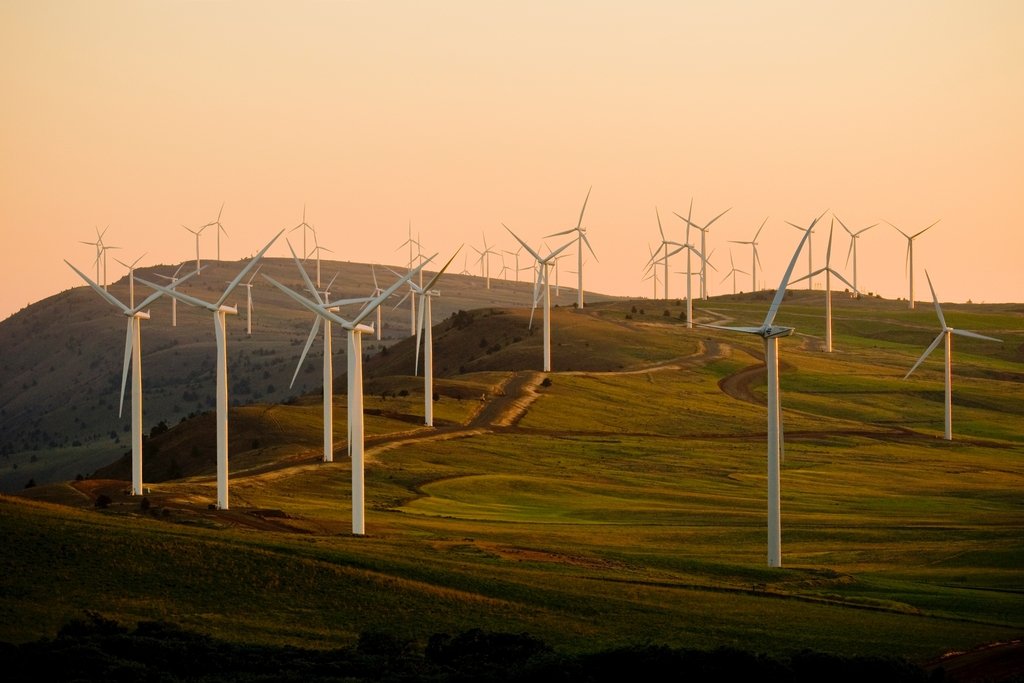Among the 14 states that were ranked in the survey, Gujarat is the most preferred state for renewable power projects, followed by Maharashtra and Karnataka

India’s top executives in the renewable energy industry believe that country could add 68 Gigawatts (GW) of new renewable energy capacity in the next five years, with utility-scale solar occupying 65% (44.2 GW) of the total estimated capacity addition.
According to Bridge To India’s Renewable Power CEO Survey 2021, the country on an average is expected to add 13.6 GW of renewable energy capacity per annum over the next five years. Out of the same, the new rooftop solar addition is expected to be below 11 GW and floating solar below 5 GW.
A majority of responses indicate solar and wind tariffs falling below Rs. 1.75 and Rs. 2.50 per kWh respectively.
Among the 14 states that were ranked in the survey, Gujarat, Maharashtra, Karnataka, Rajasthan, and Madhya Pradesh are rated as the Top 5 states for the overall growth prospects of renewable power projects. States were ranked on parameters like power demand, land and transmission availability, ease of doing business, policy framework, and DISCOM financial status. While Gujarat is the most preferred state for renewable power projects, followed by Maharashtra, and Karnataka, the states of Bihar and West Bengal are placed at the thirteenth and fourteenth positions respectively as least favoured destinations for renewable business.
The survey finds a highly optimistic market sentiment despite some operational and financial challenges. Buoyed perhaps by the huge government targets and strong investor appetite, an overall 86% of respondents are upbeat on the market prospects. The respondents gave positive feedback on most fronts, including government policies, demand for renewable power, and land. However, there are mixed views on capacity addition and most policy initiatives as well as operational issues.
The respondents from 44 leading Indian and international companies participated in the survey which elicited positive feedback on most fronts, including government policies, demand for renewable power as well as land. The responses for the annual survey, which was conducted for the sixth time in a row, came from all parts of the renewable energy value chain with participation from Indian (80%) and international (20%) players.
A majority of the respondents believe that the Modi government’s policies such as Production Linked Incentive (PLI) Scheme, Basic Customs Duty (BCD), Approved List of Models and Manufacturers (ALMM), KUSUM scheme and 12 GW PSU scheme were effective in creating a favourable environment for domestic manufacturers. Notwithstanding these, capacity additions in grid-scale storage and cell and module manufacturing are expected to remain below 15 GW and 10 GW, respectively, in the next five years.
The respondents believe that new policy initiatives for structural reforms like de-licensing the power distribution business, privatization of DISCOMs, and Electricity Amendment Bill would be effective for the sector, though execution challenges might thwart progress.
In line with last year, an overwhelming number of respondents believe that renewable project auctions in India are irrationally aggressive. Other key concerns listed by industry stakeholders include policy inconsistencies, basic customs duty, approved list of modules and manufacturers, module prices, unsigned PPAs, and poor centre-state coordination.
To improve financial condition of DISCOMs, top CEOs suggested privatization, opening up merchant market, improving infrastructure and reducing losses, removal of subsidies, smart meters, and political will. The suggestions listed by the respondents to make the country solar industry sufficient include investment in entire value chain, policies with long-term vision, more incentives for export, better access to financing, large capital subsidies, and R&D initiatives.
Subscribe to our newsletter & stay updated.